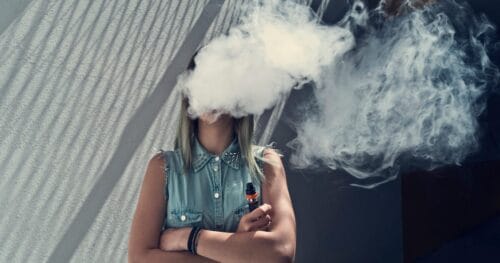Immigration, Healthcare, and the Law: Hospital Partnership Helps Patients Seeking Legal Foothold in the U.S.
July 27, 2020
By Meryl Bailey

Getty Images
"It's a tangible, life-changing service that you can provide people."
The current political climate is stressing immigrant communities more than ever before. Physicians see this stress manifest daily in their patients’ health. Feeling marginalized and alone, fewer seek medical care, food assistance and other services critical to the well-being of their families.
The pathway to residency and U.S. citizenship has become particularly arduous and opaque for people seeking a foothold in the United States. Over the past four years, the president’s administration has slashed protections for immigrants. New policies have been enacted to discourage immigrants from seeking public assistance and healthcare. One example is the new public charge rule, which penalizes immigrants seeking green cards who access public benefits such as Medicaid and the Supplemental Nutrition Assistance Program (SNAP, previously known as food stamps). In other instances, programs like Deferred Action for medical reasons were quietly shuttered, stranding families seeking life-saving medical treatments in America without legal options to stay. The program was then reinstated months later amid litigation. With policies constantly shifting, confusion and mistrust are rampant in immigrant communities, causing families to forgo essential healthcare and other resources.
“Every day in my clinic, I see how the current political climate toward immigrants has dire health consequences,” Sarah Kimball, MD, a primary care physician at Boston Medical Center said in an interview with WBUR. “I mean, our patients are really living with the effects of politics in their minds and in their bodies, and that’s certainly something that we’ve seen ramped up in the last few years.”
For Kimball, offering specialized legal services in the hospital setting makes perfect sense. Her patients face more than their share of daily obstacles to receive healthcare. Providing legal counsel in the clinic would eliminate the burdens of additional transportation and time away from home and work that make services inaccessible to some. In other cases, patients are coping with profound disabilities, or in domestic violence situations, safety issues, making it impossible to access legal services elsewhere.
To help patients navigate the U.S. immigration system’s complex terrain, Kimball and colleagues have partnered with the Boston-based Rian Immigrant Center to provide legal counsel within the hospital’s Immigrant and Refugee Health Center (IRHC) clinic space.
“Our patients have put their trust in us, and we want to provide a trusted source of legal counsel to them. Having this resource in our clinical setting makes it easier for our patients to access legal advocacy and facilitates coordination between legal and medical documents that are necessary in some court cases,” explains Kimball, co-director of the IRHC.
Why put legal services in the medical home for immigrants?
Rian Immigrant Center Attorney Jacqueline Kelley visits IRHC once a month, setting up an office in an exam room to meet with patients. Legal inquiries range from people seeking a pathway to permanent residency to advice on interaction with law enforcement in light of deportation risks.
“Sometimes they have a case, and I can move it forward. Sometimes they don’t. Even in cases where there is nothing to be done, it’s still very useful information because it’s coming from a trusted source,” explains Kelley. “There are many people who want to take advantage of immigrants who just want to support their families. Even being told there is nothing you can do right now can be very valuable for people.”
“It’s a tangible, life-changing service that you can provide people.” Click To Tweet
Kelley has been counseling patients at BMC for a year, moving to phone consultations when the clinic temporarily closed in-person visits due to COVID-19. The service is entirely supported through donations to BMC.
Immigration law is painstaking work and requires a keen eye for detail and persistence to push clients’ cases through years of bureaucratic limbo.
“The scary thing about immigration is that it can look deceptively simple on the front end, but there are such disastrous consequences if something is done wrong, even a simple administrative mistake… the agency can be so unforgiving. A mistake on the front end can result in denial, and then people being placed in deportation proceedings,” says Kelley.
The work is difficult, but the outcomes can be extraordinary
The work is difficult, but the outcomes can be extraordinary. Policies such as Deferred Action for medical reasons have been reinstated because of pressure from legal and immigrant advocacy groups. The Rian Immigrant Center represents families who have been recently granted deferred action and can now stay in the United States to seek health services for themselves and their children.
“It’s a tangible, life-changing service that you can provide people,” emphasizes Kelley. “The changes that you can make in people’s lives, helping them go from surviving to thriving — they have so much more opportunity to build their lives professionally and support their families.”
Read more: Immigrants’ Healthcare Access Concerns Call for Legal Navigation »


